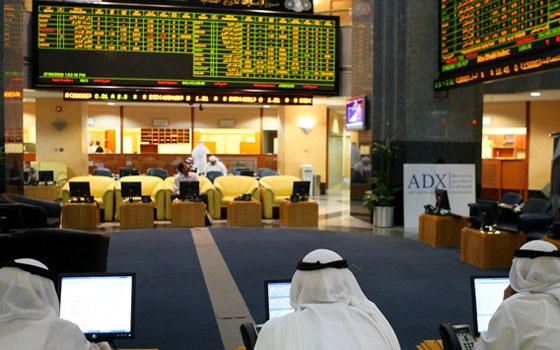Gulf Cooperation Council (GCC) equity markets are considered some of the most promising markets, with room to grow further, given the abundance of liquidity and the strengthening of the economy. Yet, they are still generally dependent on global growth, asserted Malek Kanawati, CEO of Mubasher Financial Services (MFS).
Speaking exclusively to Times Business, Malek said, "Furthermore, some political instability in the Middle East and North Africa (Mena) region represents both an opportunity and a challenge to the region. On one hand, opportunity lies in funds shifting from troubled countries (e.g., Egypt, Tunisia, and Yemen) to the more stable countries of the GCC. On the other hand, the challenge lies in how governments can address popular demand for a better standard of living. But this should not be a concern for GCC countries, given their fiscal surpluses, thanks to relatively high oil prices."
He observed, "The positive outlook for GCC equity markets is also supported by fundamentals since they rank amongst the lowest in the world in terms of price-to-earnings ratios (9-11x), with relatively high earnings growth rates (10-16 per cent). Also, their dividend yields are among the highest [in the world] (3-5 per cent)."
When asked which sectors in the GCC were the best investments at present, he said, "Almost all of the GCC governments are looking to diversify their economies away from the oil and gas sector. Non-oil sectors are expected to represent a significantly higher percentage of overall GCC GDPs. Cyclical sectors, such as real estate and materials (e.g., cement and steel), are expected to witness high growth rates in the GCC, as a result. Mega real-estate projects should drive demand, with Saudi Arabia providing more residential areas, while the United Arab Emirates and Qatar target the tourism sector. Meanwhile, reforms in the banking sector are continuing in order to absorb more liquidity from the economies [of GCC countries], thanks to current accounts surpluses. Transportation is also considered a promising sector, with a focus on joining entire GCC countries through mega transportation projects."
Commenting on how emerging markets have been the focus for many investors over the past year while Western equities have struggled, Malek observed, "Considering that the global economic crisis started in the United States and reverberated through other European countries, investors have shifted focus to emerging markets that are least affected by the crisis. In addition, emerging markets continue to boast relatively higher real gross domestic product growth rates versus their counterparts with developed economies.
Thus, ultimately, emerging markets' equities should have a higher investment potential than Western equities. But investors must keep in mind that while emerging markets should continue to enjoy higher growth rates vis-à-vis developed markets in the foreseeable future, they are not totally isolated from global economic swings."
Times of Oman
17 March




































































